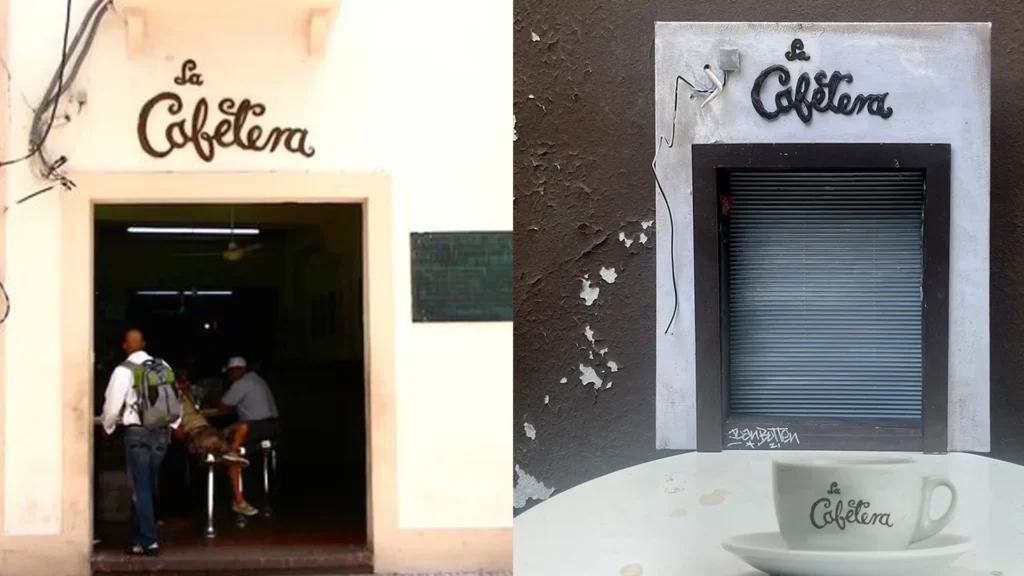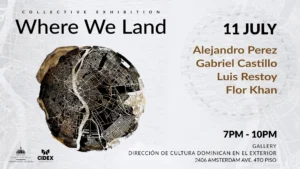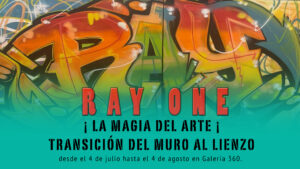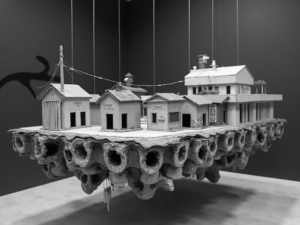I vividly remember how La Cafetera was one of the first buildings in the Colonial Zone that inspired me when I created its facade in 2021. This corner became a special place for me. My friends and I would often stop by to have a coffee that, to be honest, had a unique flavor. One of my clearest memories is from one of the last times I visited the place, when I was with José Tejada and Carlos Goico, discussing art and various cultural topics.
It was a shock to learn, through an article, that La Cafetera had closed. This iconic establishment, which for 92 years served as a refuge for musicians, intellectuals, and poets, marked the end of an era in the Colonial Zone. Its closure extinguished an important chapter in the cultural history of the area.
A Cultural Icon in the Colonial Zone
La Cafetera, founded in 1930 by Don Benito Paliza, was much more than just a café. Located on El Conde Street, between Duarte and 19 de Marzo, it stood out for its art nouveau architecture and its influence on the country’s bohemian life. During the Trujillo dictatorship, the café became a refuge for Spanish Republican exiles and a meeting point for intellectuals and leftist politicians. Among its most illustrious visitors were Don Pedro Mir, who recited his poem “Hay un país en el mundo,” and writer Pedro Peix, who left his photocopied articles there after being censored.
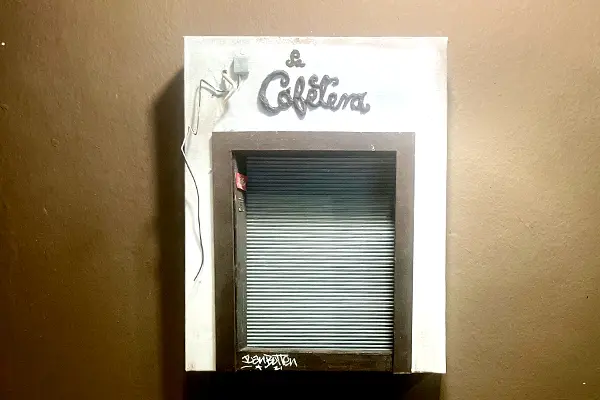
Decline and Closure
Over time, La Cafetera changed owners, and its condition began to deteriorate, exacerbated by the neglect of El Conde Street. In April 2013, the Directorate General of Internal Taxes (DGII) had ordered its provisional closure due to fiscal issues, indicating the difficulties to come.
Legacy and Future
Despite its closure, the Ministry of Culture declared it a Space of Letters in recognition of its contribution to the cultural and literary enrichment of the Dominican Republic. Today, artist Yiyo Robles and other interested parties are working to find a solution that will allow the reopening of the space, with hopes that an entrepreneur will take over its management.
Unforgettable Memories
La Cafetera was the stage for memorable encounters with artists like Guillo Pérez, Silvano Lora, and Paul Giudicelli. In the 1960s, it became a gathering place to discuss books and poetry, where Marcio Veloz Maggiolo and René del Risco exchanged ideas about boleros and songs.
With its closure, La Cafetera brings an end to an important page in the cultural history of the Colonial Zone. Although its physical presence is no longer there, its influence will remain in my memory and in the memory of those of us who shared its magic for so many years. La Cafetera will continue to live on in the memories of those who had the privilege of enjoying its unique ambiance and the conversations that took place there.

